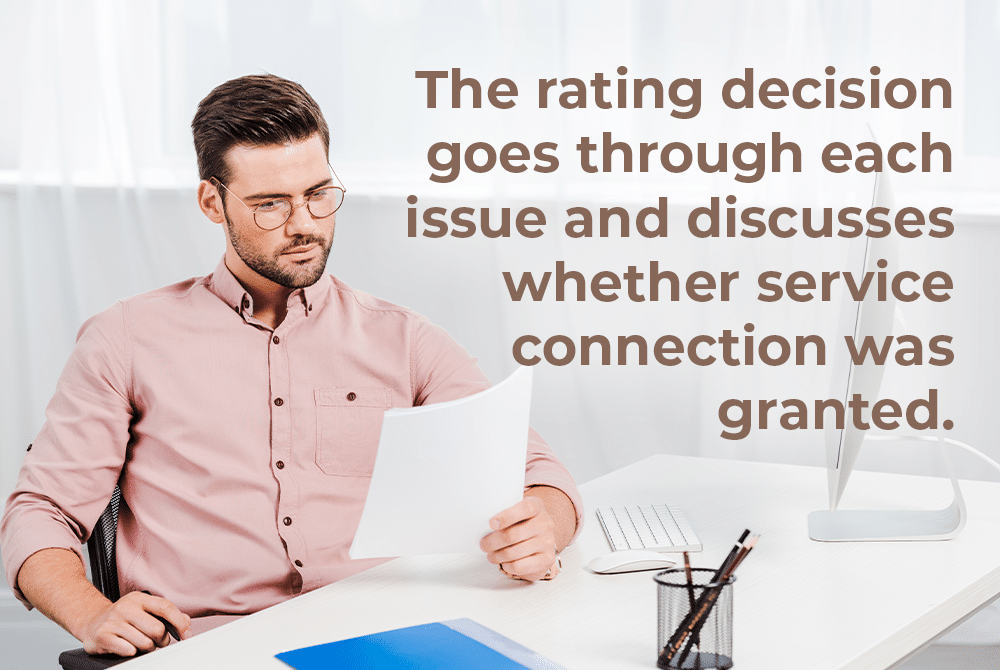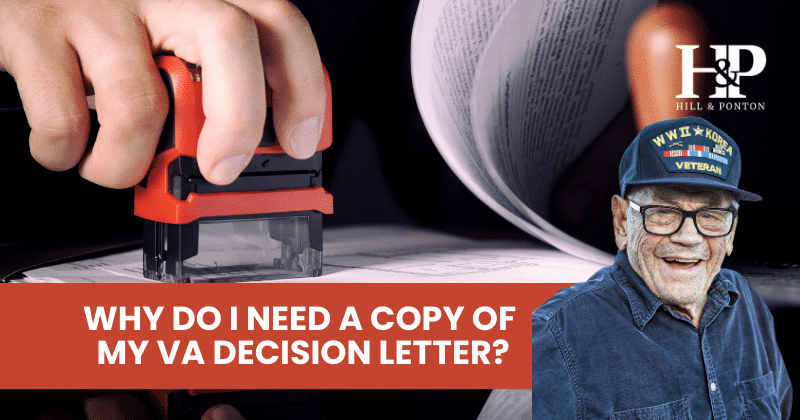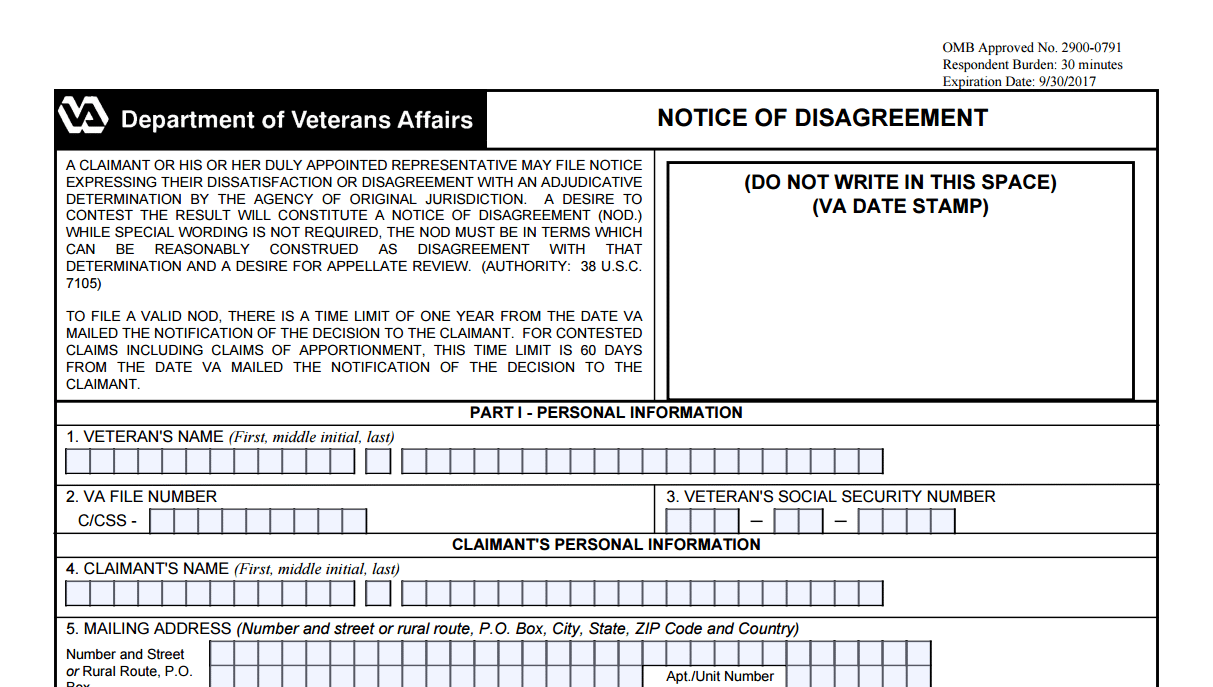The rating decision is the most significant portion of the VA disability benefits claims process. Once the United States Department of Veterans Affairs receives a claim from a disabled veteran, the VA claims process can be lengthy.
However, this news can be pivotal, especially if the decision includes a favorable disability rating and effective date.
Receiving a rating decision also means that your case is moving along in the very slow VA system, and even if the decision is not favorable, at least that means you are able to move forward with your case and determine the next steps that you will take.
Today we are going to talk about the structure of the rating decision so you are able to get all the information from it that you need in order to decide what to do next.
What is a VA award letter?
When you file a claim for disability benefits with the VA, your VA regional office will issue an award letter regarding your eligibility for disability compensation when the VA has come to a decision on your claim.
The award letter is in addition to your benefit summary.
The award letter explains your disability rating and contains your rating and service connection within 1 year of your application date.
An award letter is different than a benefits summary. A benefit summary includes your service dates, discharge status, and overall combined rating, whereas an award letter is an explanation of your disability benefits compensation and rating.
Receiving a Rating Decision: What Is the Process?
To understand the VA rating decision, it’s important to also understand the veterans disability claims process.
There are several steps that occur before the rating decision arrives at your door.
- Receipt of Claim: Once the VA receives your claim, they will send you a letter in the mail within two weeks to confirm that they received it. If you submitted your claim through eBenefits, you will receive this notification electronically within one hour.
- Initial Review: A Veteran Service Representative (VSR) will review your claim.
- Evidence Gathering: The VSR may require additional evidence to prepare your claim for a decision. In this case, they would send you a letter requesting medical evidence, including medical records from all health care providers. The VA will then review your claim.
- Preparation for Decision: Once the VA has all the evidence they need for your decision, a Ratings Veteran Service Representative (RVSR) will review all the documents in your initial claim. This evidence includes your initial application, results of your compensation and pension exam,
- Pending Decision Approval to Complete: There is one final review after the RVSR’s review. The RVSR will send your claim to a superior for one more review, and the VA will make the decision. A VA employee will prepare your decision packet.
- Decision Notification: The VA will send a decision packet to your home in the mail.
At this point, you would either receive the veterans benefits as outlines in the decision packet.
If you disagree with the VA disability rating, you would start the appeals process. You have the option to file an appeal on your own or work with a Veteran’s Service Officer (VSO). Keep in mind that you can check the status of your claim on va.gov.

What Does The VA Include in a Rating Decision?
The VA rating decision will include several sections. Each section will explain how they assessed your VA disability claim. The sections include:
- Introduction: The introduction of the rating decision will include some details about your military service. It will include the dates of services, military branch, type of claim you files, and other details about the nature of your claim.
- Decision: This section includes the actual claim decision. Here, the VA will state whether they approved your claim, the effective date that your disability compensation will begin, and the specific percent rating.
- Evidence: The VA will also list any evidence that they considered when assessing your claim. This evidence may include medical evidence, service treatment records, buddy statements, and more. Check this section carefully to make sure that the VA considered all of the evidence you submitted.
- Reasons for Decision: Here, the VA will break down exactly why they approved or denied your claim. They will reference specific evidence that they used in their decision, as well as the percent rating for the disabilities in question.
- References: This section will include all necessary citations for the rating decision. These citations may include information from the Code of Federal Regulations, details on a veterans right to appeal, and specifics about other regulations that are relevant to the VA claims process.
The rating decision should also include a cover letter (we refer to this document as the Notice of Action, or NOA). The NOA is important because the date of the NOA is the date that will be used to determine whether a Notice of Disagreement (VA Form 9) is timely.
The NOA also includes a breakdown of the decision made on each issue and boilerplate language from the VA about the appeal process. Veterans have 60 days after receiving the NOA to files an NOD.
The rating decision is also accompanied by the rating sheet, which shows a history of all the claims ever made by the veteran.
How to Obtain a Copy of Your Award Letter
There are a variety of reasons a veteran or their dependants could need a copy of the veteran’s claim including the veteran’s award letter. If you are looking for a copy of your VA rating decision letter to file a supplemental claim or for a copy of your records, the VA office has made obtaining a copy simple!
The VA Office
Typically, the VA keeps a copy of the veteran’s award letter on file at the regional VA office. Requesting an award letter from your local office is a simple process, but it can take a few days and up to a week to receive.
eBenefits
Another place to look for a copy of your award letter is on the eBenefits website. The eBenefits website is run by the VA. Copies of all your health and medical records live on the eBenefits website along with your award letter.
VA.gov
Veterans can also access their award letters from VA.gov. VA.gov is similar to eBenefits. It houses all your medical records including copies of your award letter.
Have Questions About Your VA Rating Decision?
The attorneys at Hill & Ponton are here to support you in your claim.
If you are intending to appeal a denied claim, you can contact us for an evaluation.
Why Do We Need All Decision Letters Within the Last Year?
When you’re working with Hill & Ponton to appeal your VA disability benefits, you might wonder why we require all decision letters from the last year.
We need the letter for the following reasons:
- To understand the VA’s decision with your case
- To better navigate the complexities of VA law
- To build a strong case for your appeal
- To ensure effective representation for us
Understanding the VA’s Decision-Making Process
Each decision letter you receive from the VA is a piece of a larger, more complex puzzle.
These letters provide us with critical insights into the VA’s decision-making process, giving us information about what factors they’ve considered in your case, the evidence they’ve evaluated, and the reasons they’ve provided for granting or denying your benefits.
Navigating the Complexity of VA Law
VA law is complex and continually evolving. Every decision letter you receive can shed light on how the VA is interpreting and applying the law in your case.
Understanding this can help us identify any legal errors that might have been made in the decision-making process.
Building a Strong Case
Each decision letter contains evidence, and when compiled, they present a clearer picture of your disability claim.
By analyzing all decision letters from the past year, we can identify patterns, ascertain inconsistencies, or find overlooked evidence.
It also enables us to determine if the VA has correctly adhered to their duty to assist in obtaining all relevant evidence for your claim.
Ensuring Effective Representation
At Hill & Ponton, our commitment is to represent you as effectively as possible.
To do this, we need a full understanding of your case’s history.
This includes every action taken by the VA in the last year.
These decision letters are integral to our ability to develop an effective appeal strategy tailored to your unique situation.
Remember, every piece of information can make a significant difference when it comes to appealing your VA disability benefits.
Therefore, while gathering these decision letters might feel like a cumbersome task, it plays an indispensable role in helping us secure the benefits you rightfully deserve.




